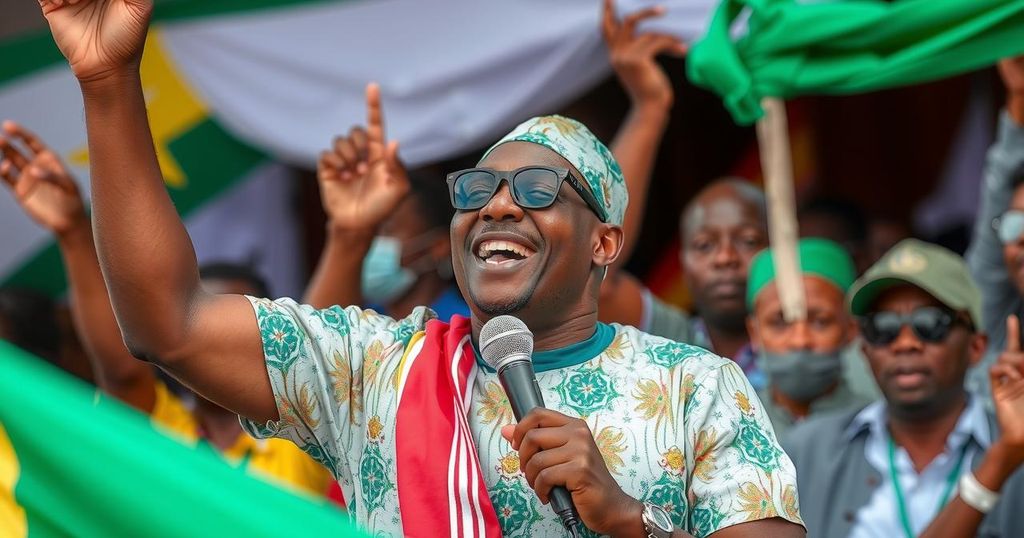Ghana’s Opposition Claims Victory in Presidential Election Amid Economic Struggles

The opposition NDC claims John Mahama has won Ghana’s presidential election with 56.3% of the votes, while the official tally is still being compiled. The election focused on economic challenges, marked by a debt crisis and inflation. Violence was reported but voting proceeded largely peacefully. Official results are expected by Tuesday, shaping the future political landscape of Ghana.
In a significant political development in Ghana, the opposition National Democratic Congress (NDC) party, led by John Mahama, has claimed victory in the recent presidential election held on Saturday. Although the electoral authorities continue to compile the official results, NDC spokesperson Sammy Gyamfi stated that their internal review indicated Mahama had obtained approximately 56.3 percent of the votes compared to 41.3 percent for the ruling New Patriotic Party (NPP) candidate, Vice President Mahamudu Bawumia.
The pivotal election centered around economic challenges, with Ghana facing high inflation, a debt default crisis, and a recent $3 billion International Monetary Fund (IMF) bailout. Voters were selecting a successor to outgoing President Nana Akufo-Addo, who has completed his maximum two terms in office. Preliminary tallies from local channel ChannelOne TV showed Mahama leading in 42 out of 276 constituencies, and political agents from both parties are actively monitoring the ongoing vote counting process.
Deputy Commissioner of the Electoral Commission, Bossman Asare, confirmed that the collation of results was still in progress and the official results would likely be announced by Tuesday. With the election unfolding largely peacefully, save for isolated violent incidents, Mahama’s return presents a challenge to Bawumia, who attempts to secure a third consecutive term for the NPP amidst criticisms regarding his predecessor’s economic performance.
Currently, the nation stands at a crossroads as it navigates these economic realities, emphasizing the public’s desire for change, as highlighted by the NDC.
Ghana has a well-established history of democratic governance, characterized by multi-party elections since 1992. The country’s electoral framework allows substantial observation by party agents to ensure transparency during voting processes. In the latest elections, the focus has shifted significantly towards economic issues, especially given Ghana’s struggle with inflation and high living costs. The opposition, represented by John Mahama, is working to capitalize on public discontent following the government’s economic management under President Akufo-Addo. The upcoming results are anticipated to play a crucial role in determining the political landscape of Ghana moving forward.
In conclusion, the claims of victory by John Mahama and the NDC in the recent Ghanaian presidential election highlight the electorate’s call for change amidst ongoing economic troubles. The provisional results suggest a significant margin for Mahama over Bawumia of the NPP, with both parties maintaining surveillance over the electoral process. As the official results await confirmation, the political ramifications of this election could significantly influence Ghana’s future governance and economic recovery efforts.
Original Source: www.france24.com







